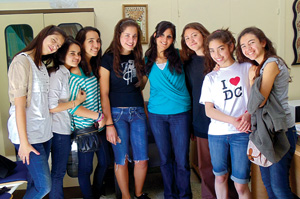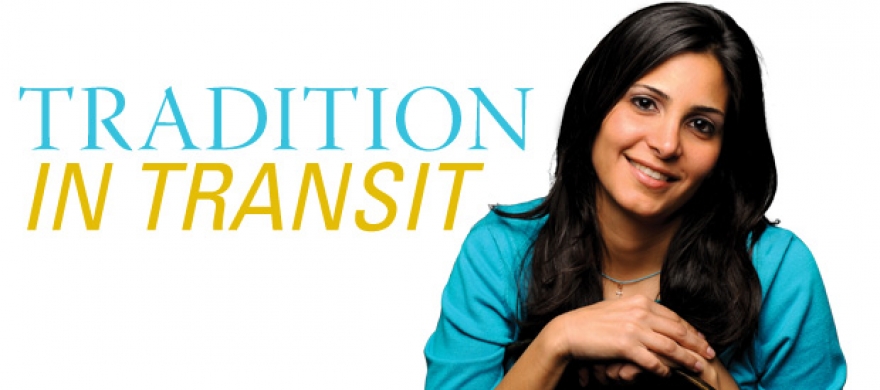Tradition in Transit
Fulbright scholar Rasha Salib explores the cultural crossroads of American and Jordanian values.
Growing up in Amman, Jordan, Rasha Salib’s father told her and her sisters that an education is the strongest weapon. “No matter where you go in the world, if you have a degree in your hands, no matter what happens to you, you can always do something with it,” he would instruct.
This philosophy propelled Salib forward on an uncommon journey from Jordan to Southern California and the Pepperdine University Graduate School of Education and Psychology, where today she is a Fulbright Scholar studying in the master of arts in clinical psychology program.
The way Salib saw it, staying in Jordan meant continuing her career as a school counselor at the Ahliyyah School for Girls in Amman, where she worked with students on identifying and expressing feelings, reducing test anxiety, and combating relational aggression, such as gossiping and bullying. She also informed their parents about how to best tend to teenage girls’ unique needs.
Although she was well respected by her students and their parents, “I wanted more and I felt like I could do more, and that there was more to learn,” she explains. “I wanted to broaden my knowledge and experience because I felt that there was more to give back to the community.”

Salib (in blue shirt) surrounded by students in her counseling office at the Ahliyyah School for Girls in Amman, Jordan.
Eager to gain sufficient training to personally treat her own patients, Salib secured a prestigious Fulbright Scholarship and began researching graduate-level marriage and family therapy programs. When she found that they did not exist in her home country, she expanded her search all the way to California. “I’m so grateful that I’m here, because these two years are going to shape my future,” she says.
The move, however, was not typical of a young woman from the Middle East. “To see a woman move to the U.S. away from her family to get more education is not very traditional,” notes Salib, who credits her supportive parents with encouraging her to take the leap. Just as her father cheered her education, “my mother never allowed anyone to say that my sisters and I were going to achieve less than a male would,” she recalls.
It was, in fact, the conflict between Salib’s ambitions and the constructs of Jordan’s male-dominated society that fueled her pursuit of a different cultural perspective to bring home to the young women she counseled in her country. “I have this very strong conviction that if you want a society to advance, you need to educate the women, because in Jordan, women represent over half of our population,” she explains. “We can make great use of that resource by educating and encouraging women, rather than continuing what the culture thinks is appropriate for females.
Although Jordanian culture remains largely traditional, it has been influenced over time by values and lifestyles adopted elsewhere on the globe. As a school counselor, Salib tailored many of her lessons to address this Westernization. “A lot of the values that they get from the media conflict with our culture,” she explains, referencing the standards of dress, distorted body image, and excessive emphasis placed on outer beauty. “They are taking all of these supposed American values and implementing them in Jordan. I try to explain to the girls that this is not reality—this is less than one percent of the population and Hollywood does not represent America.”
While she advises against the oversaturation of media-imposed values, Salib hopes to bridge the gap between the East and West by bringing an American perspective back to her clinical work when she returns home. After graduating from Pepperdine, Salib aims to work in a clinical setting with a psychiatrist for whom she previously worked in Jordan and eventually open her own clinic.
“A lot of the issues in the U.S. might be too specific and not really transferable,” she says, about topics of homosexuality, domestic violence, child abuse, and drug addiction that are not as openly discussed in Jordan . However, Salib plans on incorporating the American value of fostering interpersonal relationship by working with individuals, couples, and families in order to help them cope with issues of divorce and abuse, and advise them on the roles and expectations of couples within marriage.
“One thing I want to do is remove the stigma and educate people about the importance of early detection of mental health problems and prevention,” she says. More importantly, she hopes to break the societal boundaries of what women can achieve.
“I believe in empowering females,” she asserts. “Education is the most important value because this is how we advance, and to give back to the community is very important. This is my duty for my society.”
